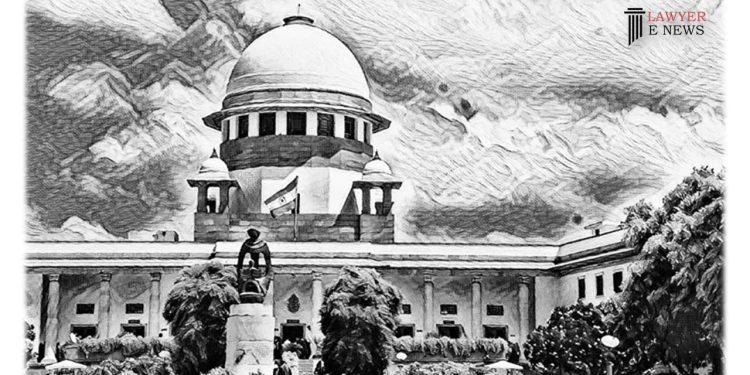-
by Admin
15 February 2026 2:36 AM



On 15th March, Supreme Court of India in a recent Judgement (Shankar Vs State of Maharashtra) observed that in a case based on circumstantial evidence, motive assumes great significance, according to the Supreme Court. The absence of motive can weigh in favour of the accused, but it is not necessary for the prosecution to establish motive in every case. However, if the prosecution fails to establish motive after attributing one, it will weaken their case.
Shankar, the appellant, challenged the findings of conviction and consequential imposition of sentence raised on various grounds. The case pertained to the death of Rahul Pundlik Meshram, who was found dead with 22 antemortem injuries. Based on circumstantial evidence, the Trial Court found the appellants guilty and convicted and sentenced them. The High Court confirmed the conviction, and the surviving accused preferred an appeal.
The Supreme Court outlined the principles of circumstantial evidence laid down in the case of Sharad Birdhichand Sarda v. State of Maharashtra and Prakash v. State of Rajasthan. The Court outlined five conditions that must be fulfilled for a case against an accused to be fully established based on circumstantial evidence. The Court held that these principles constitute the “panchsheel” of proof for a case based on circumstantial evidence, and a conviction can be sustained if these conditions are satisfied.
The Supreme Court noted that in cases where concurrent findings are recorded by lower courts, the scope of interference under Article 136 of the Constitution of India is limited. However, if doubt lingers regarding the conclusiveness of any circumstance relied on by the prosecution, the evidence must be scrutinized by the Supreme Court to ensure that the totality of evidence and circumstances relied on constitutes a complete chain and points to the guilt of the convict, leaving no room for any other hypothesis.
The Supreme Court observed that in a case based on circumstantial evidence, motive assumes great significance. The absence of motive can weigh in favor of the accused, but it is not necessary for the prosecution to establish motive in every case. However, if the prosecution fails to establish motive after attributing one, it will weaken their case.
In this case, the Supreme Court observed that the prosecution had alleged a motive for the crime but had failed to establish it. The Trial Court had made a positive finding that the prosecution had miserably failed to establish the alleged motive, which the High Court had failed to consider. The Supreme Court held that failure to establish the alleged motive in a case based on circumstantial evidence can weaken the case of the prosecution and should be given proper weight by the courts.
The Supreme Court observed that the High Court had relied on the 'last seen theory', recovery of weapons, and seizure of clothes to confirm the conviction of the appellants. However, the evidence presented by the prosecution to prove the 'last seen theory' was contradictory and unreliable. The evidence presented by PW-8 and PW-10 did not conclusively prove that the deceased was last seen with the accused just prior to the finding of his dead body. Therefore, the Supreme Court held that it is unsafe to convict the appellant and gave him the benefit of doubt. The conviction was set aside, and the appeal was allowed.
Shankar Vs State of Maharashtra
